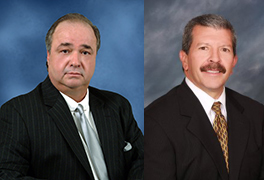By Matt Davis, The Lens staff writer |
A bill scheduled for debate Wednesday on the floor of the state House would let New Orleans Traffic Court charge higher fees even though its budget is booming.
Further, the legislator who sponsored the bill and one of the court’s judges gave different reasons why the bill – and the additional money – is needed. The increased revenue would feed into the court’s judicial-expense fund, which receives little public scrutiny.
House Bill 52, sponsored by state Rep. Reed Henderson, D-Violet, would add up to $30 to the fees for those pleading guilty, being convicted, or entering a no-contest plea.
Though he’s primarily a St. Bernard Parish legislator, Henderson represents a portion of Orleans Parish as well, which is what gives him the authority to introduce such a locally targeted bill.
But it is unclear whether or why Traffic Court needs the extra money. Henderson said he introduced the bill because he had been told that the city plans to cut the court’s budget. But one city official said such a cut is not being considered.
“I talked to the judges. They told me the city is going to have to cut their budget,” Henderson said. “They said a large portion of their revenue comes from the city, so in order to make up that revenue, the cost of court needs to be raised.”
Henderson said he spoke with Traffic Court Judge Mark Shea about the bill, and Shea appeared with Henderson at the House Judiciary Committee on April 28 in support of the bill. Shea said the measure would bring New Orleans Traffic Court, which is limited to a $10 fee, into parity with all other courts in the state, which are capped at $30.
Henderson said a Traffic Court employee who lives in his district first contacted him about the bill. Henderson did not want to identify the Traffic Court employee.
But in an interview today, Shea said he never told Henderson that the city might cut the court’s budget.
“Maybe he misunderstood,” Shea said. “What I did say was we need this because we’re limited in our budget, not cutting the budget. There’s no cutting involved. Now the city, they may cut us next year, there’s no telling. I don’t know what the city’s gonna do.”
Meanwhile, the office of the city council’s budget chairman said there are no plans or scuttlebutt about changing the Traffic Court budget in 2012.
“We have not yet received the mayor’s budget, and any proposed changes to any budget are not something we will be discussing until Oct. 15,” said David Gavlinski, deputy chief of staff for city council’s budget chairman Arnie Fielkow. “We have not heard any rumors of cuts to Traffic Court at this time.”
The bill would generate about $600,000 a year for the court’s judicial-expense fund, Shea said, assuming 30,000 tickets with a new $20 fine.
The Traffic Court is a city body with four judges on staff. Of the court’s $4 million operating budget, the city paid $940,000 in 2010 towards salaries for the court’s 84 employees.
Last year, the court ended with a significant surplus because of record revenues, bringing in $14 million.
Of those $14 million, Traffic Court used $4 million against operating costs in the current year, returned $5.5 million to the city’s general fund, and disbursed $4.5 million among various criminal justice agencies such as the District Attorney’s Office, said Traffic Court Judge Robert Jones, who represented the court at the City Council’s Nov. 9 budget hearing.
The budget for the court’s judicial-expense fund receives no public hearing. Instead, it is approved in a meeting of the four Traffic Court judges. It includes money for take-home vehicles such as two Mercury Grand Marquis, a Ford Crown Victoria and two Ford Expeditions for three of the four judges, the clerk of court, and the judicial administrator, records show.
Shea’s 2011 Crown Victoria cost taxpayers $29,000.
The judicial-expense fund check register for 2010 shows that $1.4 million was spent on things such as the services of ad hoc judges, court reporters, and information technology services.
The additional money most likely would be spent on a new computer system and voice recognition phone software, among other things, Shea said.
Traffic Court is also about to embark on an $11 million renovation, combining $7.5 million in unspent bond money with a $2.7 million “rainy day fund,” accumulated from surplus court revenues at the end of each year, and a further $1 million in “rainy day fund” money from Municipal Court, Jones said.
While Traffic Court’s revenue was up 40 percent from $10 million to $14 million in 2010, the city’s payment to the court held relatively stable at $948,000.
And while the city’s portion of the court’s $4.5 million annual operating budget was scrutinized during the city’s budget process, none of the council members asked detailed questions about the rest of the money.
The bill was rescheduled for a second vote Wednesday on the House floor after failing to secure a majority with a 49-22 vote last week.

